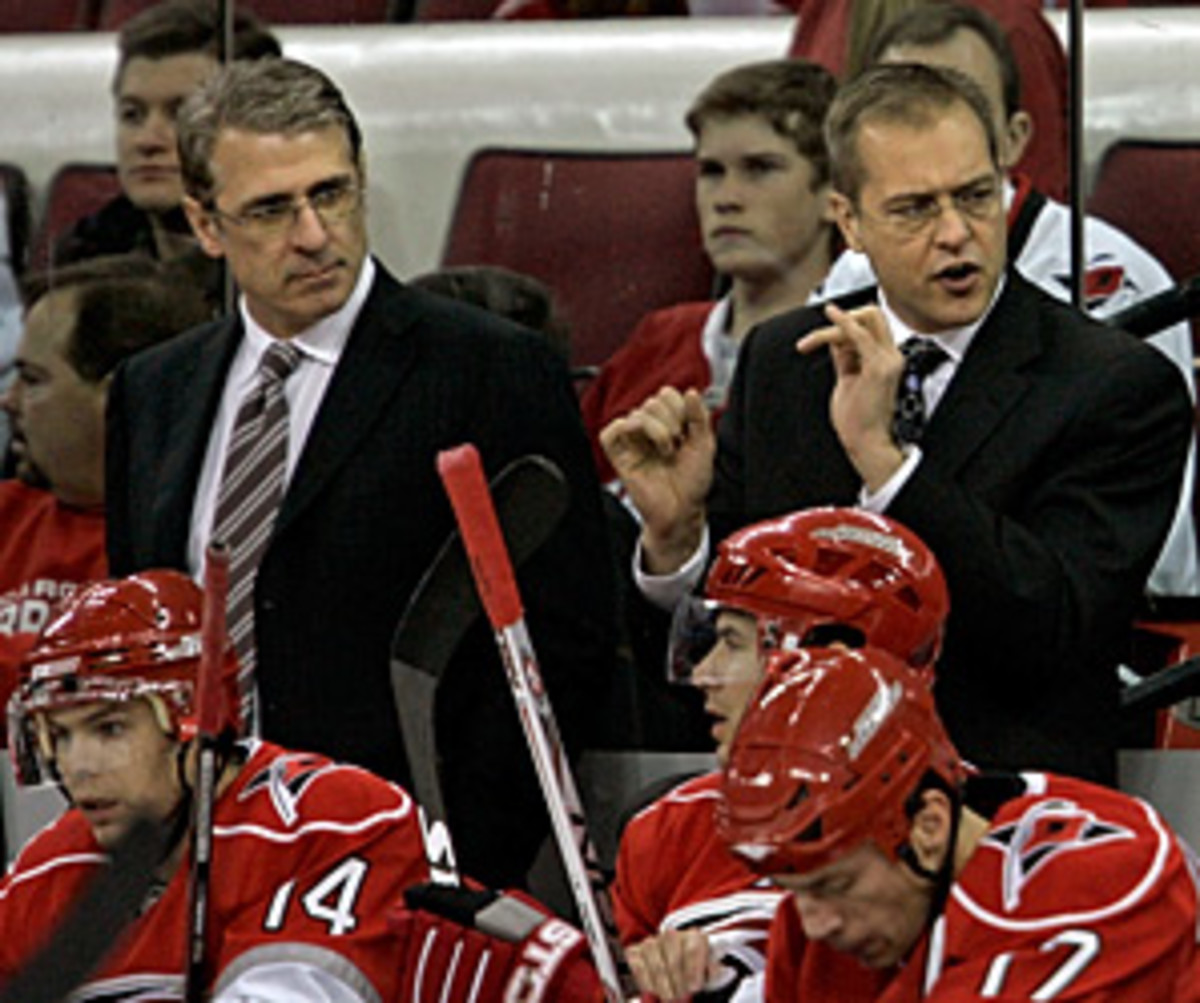Q&A with Carolina's Paul Maurice
Now, a coach being brought back isn't unheard of, but Maurice's situation is unique in that he went from an emerging market in Raleigh to the center of the hockey world's media focus in Toronto. Add in the fact that he took his edition of the 'Canes to the 2002 Stanley Cup Final only to lose to the Detroit Red Wings. Now Maurice takes over a team that won the Cup in 2006, yet hasn't made it back to the postseason in two subsequent campaigns.
Interestingly, Maurice is trying to spur the Hurricanes with the fact that no team has ever missed the playoffs three successive years following a championship. With the Washington Capitals racing out to a big lead in the Southeast Division as the NHL moves towards the mid-point of the season, the 'Canes might be in a battle with the Buffalo Sabres and Florida Panthers for the eighth and final playoff spot the rest of the way.
Against that backdrop, I had a chance to catch up with Maurice and get his input on his odyssey from Raleigh to Toronto and back again.
Darren Eliot: Any trepidation in taking over this team?
Paul Maurice: Not once I took a deep breath (smiles). The lead-up is all adrenaline, but once I walked into the locker room, I was fine. I felt comfortable in those shoes.
Eliot: How was the challenge presented?
Maurice: The mandate from Jimmy (GM Rutherford) was to tighten up our approach in all three zones, improve the special teams and get the big guys going.
Eliot: To that end, Ron Francis is now your associate coach. Is his role primarily to handle the power play?
Maurice: He is in charge of the power play, yes. And what a plus as a coach. The way he sees things and explains them really benefits the players. There's not much a player can lobby against when Ronny offers up to try something a certain way. I actually sit in on the meetings primarily to learn. And it has gone better. We're getting better looks more consistently.
Eliot: Since you've been back, Eric Staal has taken off offensively. Is there a direct correlation?
Maurice: Eric is an elite player. I can't take any credit because this is a good group in total. We have great leadership with Roddy (Brind'Amour) and it starts there. The guys have been very willing to embrace a few different things and that goes for Eric as well. Overall, though, we've endured a unique stretch where only two of our opponents so far are currently outside the playoff picture (Carolina is 5-4-3 under Maurice). So, all of this has taken place during a very competitive portion of our schedule.
Eliot: Having said that, how aware are you of your team's position currently?
Maurice: Like I said, I really like this team. We're getting healthy; maybe as healthy this team has been in a long time. So that's a positive. But the reality is there to win. Washington in our division has moved out to a big lead and everyone else is already battling for important points, including us.
Eliot: So the pressure is already there?
Maurice: It's always there. Every night. Each game. Trying to earn valuable points in the standings.
Eliot: What did your time in Toronto teach you? How did that experience add to your coaching perspective?
Maurice: I don't think I can really say yet, how all of that will manifest itself. I will say it is a different kind of pressure because of the unrelenting scrutiny. Every little tweak to a line is analyzed and the player involved has to answer questions about it for three days. But the desire and internal pressure to win is the same. And in some ways, winning might be even more important in markets like Raleigh, at least how we're viewed in the community. That's one thing I've really noticed since coming back -- the growth of the organization. We went to the Final in 2002 and the team won the Cup in 2006. In the five years I've been away, the area has truly embraced the team as their own and the franchise has continued to add hockey knowledge throughout. It is a sign of real growth.





